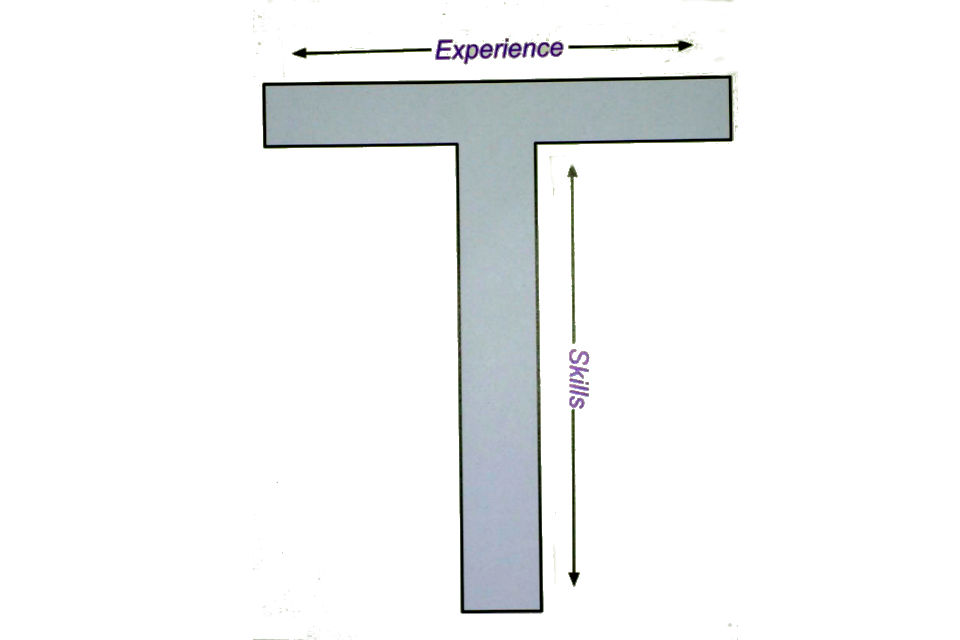
This year’s Civil Service Live is fast approaching, and I’d like to use this blog to encourage you to attend what is an exciting and important series of events.
I attended one of last year’s events in London, and realised it hit upon a couple of things that I feel really passionate about.
Firstly, it brings us together as a Civil Service to talk about the issues that are important to our organisation, and offers a fantastic opportunity to network with people from other departments, as well as from outside of Government. Secondly, it offers Civil Servants a platform to showcase their work, and collaborate with colleagues to find solutions to the challenges they face. This is a big part of leadership – and we need more of it at all levels of the Civil Service. I’m thrilled we are giving civil servants an opportunity to develop in this area. So, it really is a great thing to take part in – I enjoyed it so much last year I plan to attend all of the events taking place across the country this year.
This year, Civil Service Live is based on four themes: The New UK Government, Innovation, People and Leadership, and A Skilled Civil Service: Professions.
I will be taking part in the plenary session on A Skilled Civil Service that is being led by Jennie Granger (Director General for Enforcement and Compliance at HMRC). Jennie has done some fantastic work to look at how we can help our future leaders develop the skills they need to thrive in the modern Civil Service
 The plenary will be based around the concept of ‘T-shaped people’. The vertical bar represents the depth of skills in a single field. The horizontal bar represents an individual’s broader experience as well as their leadership and collaboration skills.
The plenary will be based around the concept of ‘T-shaped people’. The vertical bar represents the depth of skills in a single field. The horizontal bar represents an individual’s broader experience as well as their leadership and collaboration skills.
I really like this concept, and it’s an excellent way of describing the way we need to work as a Civil Service to deliver on the process of reform and improve public services for the people we serve.
Anyone who read my blog on Experience back in March knows how important I feel it is that we develop career paths, and hence deep expertise in delivery functions such as commercial, digital & project management, as well as those of policy making. (Again, think of this as the vertical bar of the T – which I call a “career anchor”.) Then, we can use our career anchor to develop broader experience and awareness across a range of areas. But the balance is critical.
So, I’m hoping we can use Jennie’s session to talk about how we get that balance, how we build deep expertise and also broader experience. Every one of us needs a plan for our future – and I think this is central to developing such a plan.
I hope that has given you a flavour of what the plenary is going to be about, and inspired you to come along, and ask some questions.
I look forward to seeing you all there.
You can register now at Civil Service Live.

12 comments
Comment by Tom 1 posted on
With regards to the skills required to be a good leader, last year in HMRC, someone asked a question on the Hotseat (a facility where staff can ask questions of members of the Board) about the fact that several newly trained Tax Inspectors (Grade 7s) were going to be made managers. The staff member was concerned that the four years of technical training that was spent on these people was going to be wasted and they also wanted to know what skills they had to be managers. The response was that these Grade 7s had been through the Tax Inspector training programme and could therefore do anything, even be managers, despite the fact that there isn't any management training modules included in the course.
Given the poor rating that the senior management of HMRC get in the CS Staff Survey, then maybe the training given to these mainly graduate recruits, isn't giving them the skills and knowledge to be effective leaders.
Comment by Rossana Roby posted on
Hi John
It sounds like a good idea, but without the right support and training it could just fizzle out. I had an idea a number of years ago that was passed to HR but nothing happened. It involved a way we could train staff in a number of departments. There are skills we need wherever we work, and this training was for all grades to show how these skills fit in. It also gave staff the opportunity to train in different roles such as AO to O and O to HO. It would take me a long time to go into everything here, but I believe training is the key to gaining a superior and motivated workforce.
Ciao Rossana
Comment by Steve Rush posted on
I believe a range of skills are needed and that there should be a minimum for many of them - Communications skills, People Management - to mention two. Often I've seen people progress without these, due to other skills being perceived as a higher priority. The reverse happens too - skills that some have being undervalued.
Making it easier to move around and get more experience has to be a good thing.
Comment by John posted on
Having recently heard about two major changes to my job role via e-mails informing the office of these changes, perhaps we should be placing more emphasis on communication and people skills for our leadership.
....And when I pointed out the lack of communication It was filtered back to me that my comments were negative behaviours.....
Comment by Mike posted on
I think most careers would be more like an "O" (round and round in circles)
Comment by MaryRogers posted on
A few thoughts to spark debate.......1. leadership development needs to start from the first day of service and continue throughout a career. 2 We have many people who have a portfolio of skills, some have specialised throughout their careers. Some have the potential to be great managers others are better suitable to highly specialised "technical" areas with no staff. To maximise Civil Service capability we need to ensure that there is synergy between people's capability and their jobs...this is a challenge when teams, their structure and size change regularly. 3 Lots of people do work in the community, as youth leaders, with charities, in the Reserves, as JP's, that demonstrate their leadership skills, can we give them credit for this?
Comment by Chris posted on
To really help improve skills and expertise we need to make it much easier for people to experience different departments/agencies in their locality/region. Due to the pay differences very few people move around departments. This can mean we are missing out on a lot and not sharing experiences.The red tape associated with loans or secondments is totally outdated and needs a big reform so Civil Servants can experience other areas of the service and "cross pollinate" ideas and experience.
Comment by Michael posted on
"Due to the pay differences very few people move around departments." - a shot in the foot by the government that decided to end the unified CS pay system that I knew when I joined (in 1987). The unified system also encouraged potential CS's to apply to a range of departments before settling on one (as I did).
Comment by Jason Vann-Allan posted on
I think the concept of T shaped people and recognising that the vertical I can represent more than one set of skills, to balance the horizontal T showing experience gained across various roles is a good concept. It certainly got me thinking about my own depth of skills and experiences.
Hence I agree with Sally's comment above that maybe an "I" shape with horizontal bars at both top and bottom may reflect the true varient of experience and skills required in the civil service now.
Really looking forward to my first Civil Service Live in Edinburgh in September and finding out how others there have progressed their careers.
Comment by Anon posted on
Sorry to disagree with you ... but whether someone has experience in a single field, or several fields, if they don't have people skills their management skills wont work. And unfortunately I've come across a lot of managers who simply don't understand the concept of people skills!!!
Comment by Sally Donaghey posted on
Many thanks for this blog and introducing this concept of T shaped people. My only observation would be that the vertical bar may not represent depth of skills from a single field - but in fact from several fields - as the "portfolio" career path is increasingly common (and arguably beneficial to the Service) and provides an excellent foundation for leadership and strategic skills sets.
Perhaps an "I" shape with horizontal bars both top and bottom could be a potential varient on the concept?
I look forward to attending Civil Service Live later this year and the Skilled Civil Service plenary session, to explore this further.
Comment by Steve posted on
Your 'T' image is wonky!